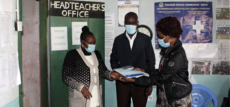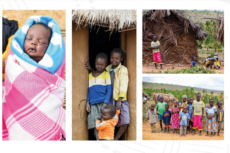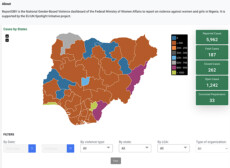Getting Girls Back to School During the COVID-19 Pandemic by Operationalizing the School Re-entry Policy Guidelines in Kenya
COVID-19 disrupted the learning of many children globally, denying them access to social protection and other benefits associated with schooling. In Kenya, the Ministry [...]
Community Demographic Model: Invest Today for a Resilient Tomorrow
It's impossible to know exactly what the future will bring, but modeling can help us predict or forecast possible future outcomes. Population Council researchers [...]
Children in Indian Districts with High Climate Vulnerability More Likely to Suffer from Malnutrition
Children living in districts of India that are highly vulnerable to climate variability are more likely to suffer from malnutrition compared with children living [...]
Community-Level Assessments of Climate Threats in Odisha State, India
Climate change and climate-induced disasters pose a significant challenge to poverty reduction, health, and development in many countries. Located on the east coast of [...]
On the Front Line: Community Health and Humanitarian Crises
Frontline health workers are often the first and only link to essential health services for millions of people worldwide, particularly during humanitarian crises. In [...]
Getting It Right! Improving Kenya’s Human Capital By Reducing Stunting
About 26% of children in Kenya are stunted from malnutrition. Poor nutrition in early life irreversibly impacts brain development, affecting learning and future productivity. [...]
Child Marriage, Climate Change, and Local-Level Variability
As we learn more about climate change, we find increasing evidence of the divergent social impact of climate-related events. The risk of child marriage [...]
A Gender-Based Violence Dashboard for Nigeria, Driven Bottom-Up by Communities
When COVID-19 created a “shadow pandemic” of violence against women, the Population Council worked with the government of Nigeria and partners to develop the [...]



